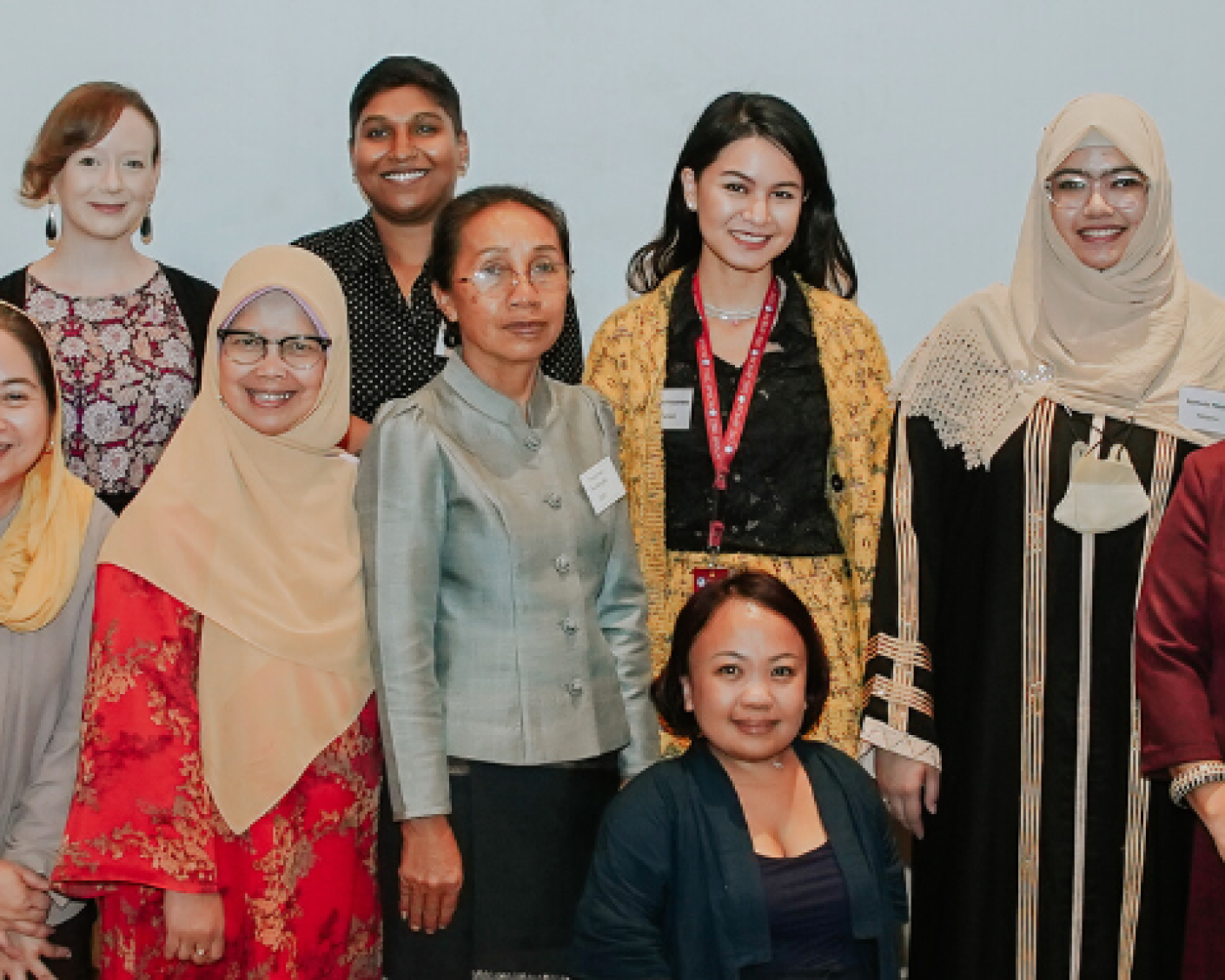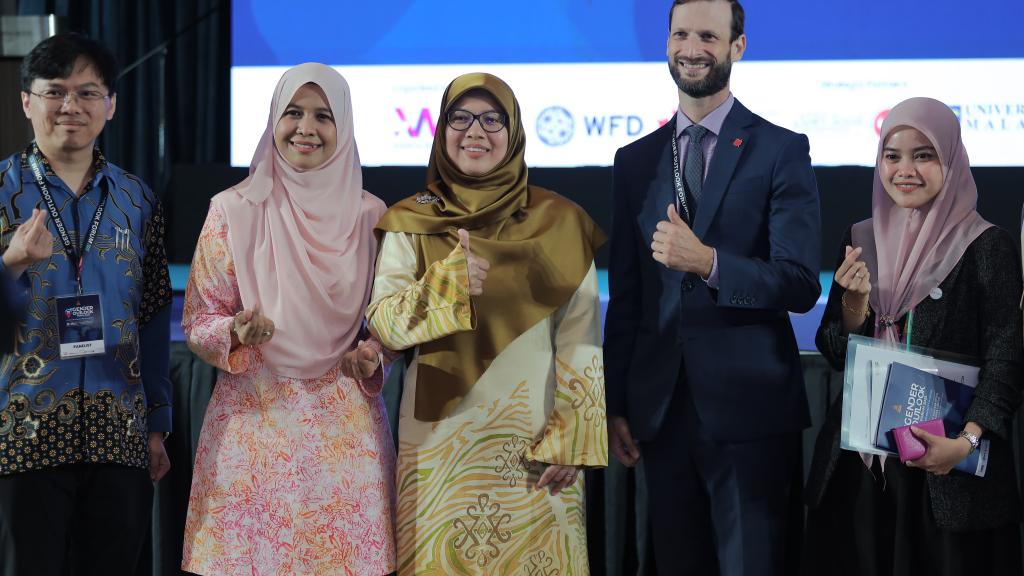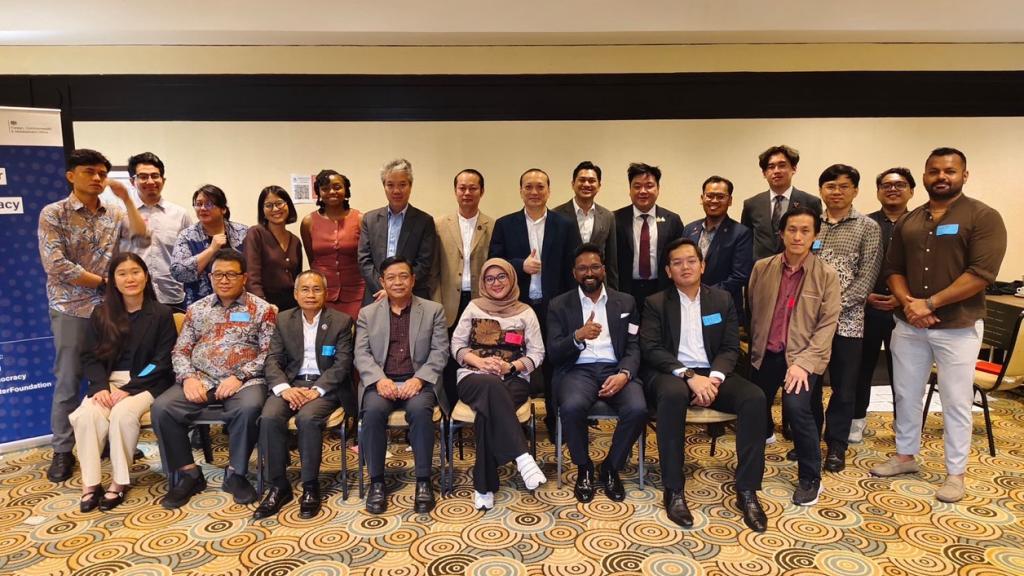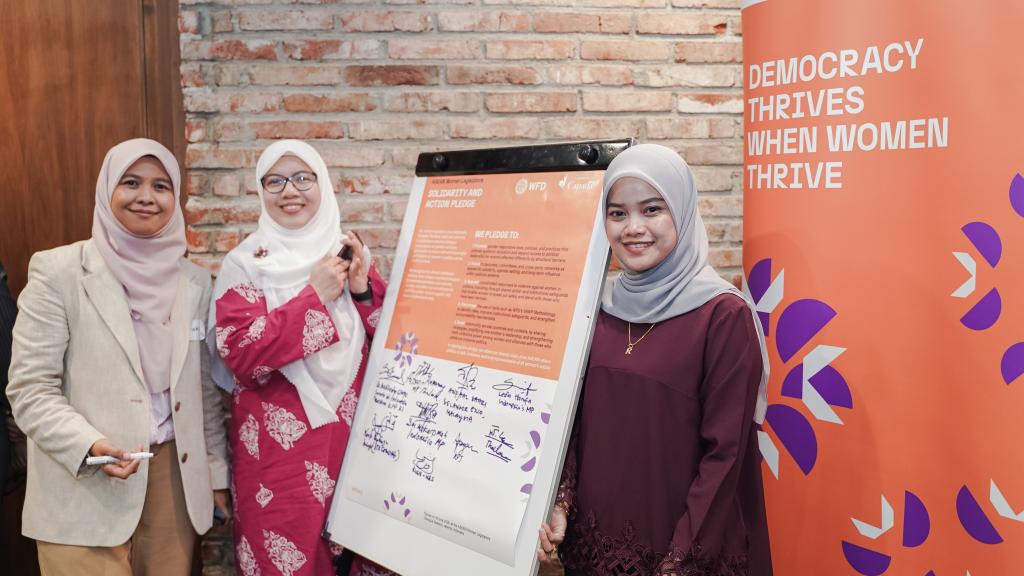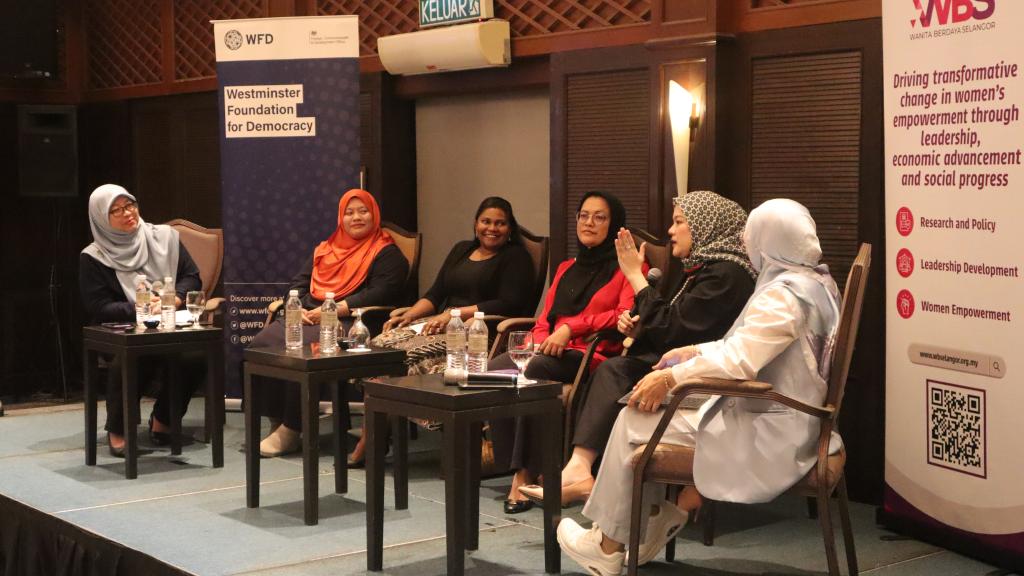Global Affairs Canada
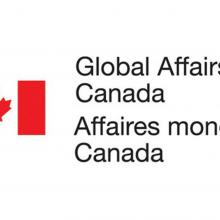
Advancing equal societies in the ASEAN region
Across the Southeast Asia region, women remain underrepresented in political life. The barriers to women's equal participation and leadership are systemic and complex. They include obstacles preventing prospective women candidates from entering politics, as well as discrimination, harassment, and violence.
Since 2022, WFD’s Women’s Political Leadership programme has been working to advance equality in politics and wider society across the ASEAN region (Association of Southeast Asian Nations) by making it easier for politically active women to participate in local, regional and national politics and to become political leaders.
We want to enable an environment where there are more women in politics, where women in politics are better protected from violence, and where women’s issues are better addressed in law and policy.
The programme is funded by Global Affairs Canada and was announced as part of Canadian commitments made at the 2021 Summit for Democracy.
Phase I
March 2022-August 2023
Women’s equal participation in politics benefits the whole of society. However, across the world, women are under-represented at all levels of formal politics. Thailand, Malaysia, and Indonesia – the three countries covered by Phase I of the programme – are no different. In Indonesia, women hold 121 of 575 seats in the lower house of parliament, just 21%. In Thailand and Malaysia, just 15% and 14% of seats are held by women.
In this phase:

Research was undertaken to deepen the evidence base, highlighting the barriers that women face in their pursuit of political leadership in Southeast Asia. Read the report here

Targeted country-level work was undertaken with politically active women and their allies to start to address these barriers and to build supportive networks and coalitions.
This phase also included regional components in Laos and the Philippines (Bangsamoro).
Phase II
April 2024-August 2025
The goal of this phase is to continue to work towards improving equality in political leadership for diverse groups of women in Indonesia, Laos, Malaysia, and Thailand. It will focus on improvements at regional and national levels by building upon the learning – and leveraging the relationships, networks, and knowledge – established in Phase I. WFD colleagues in these countries will collaborate with key stakeholders including the women themselves, civil society organisations (CSOs), the media, and others.
We want to see:

Political actors adopt a more systematic approach to addressing Violence Against Women in Politics (VAWP) and its impact on women’s political leadership, prioritising this as part of regional and national political agendas.

Improved regional and national uptake of interventions and inclusive practices and processes that address barriers to women’s political leadership.
